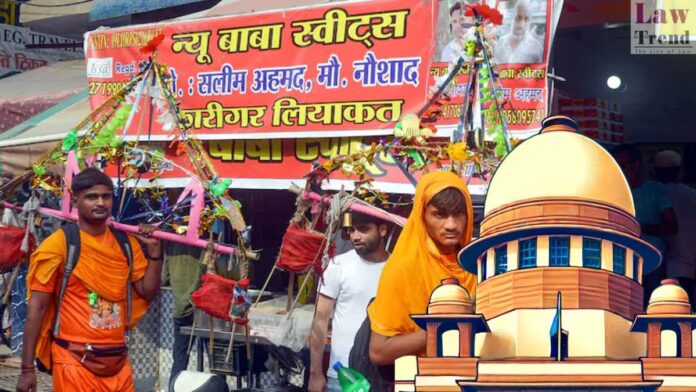The Supreme Court on Tuesday issued a notice to the Uttar Pradesh government on a petition challenging its directive mandating the display of QR codes at all eateries along the kanwar yatra route, which allegedly disclose the names and identities of shop owners.
A bench comprising Justices M.M. Sundresh and N. Kotiswar Singh sought the state’s response by July 22 on the plea filed by academician Apoorvanand Jha and others, who argue that the directive amounts to discriminatory profiling based on religious and caste identities.
The petitioners pointed to a June 25 press release issued by the UP administration, which requires dhabas, restaurants, and stalls along the yatra route to display QR codes revealing owner details. They contend that this move revives the same policy the top court had stayed last year when BJP-ruled states like Uttar Pradesh, Uttarakhand, and Madhya Pradesh had asked eateries to publicly display the names of owners and staff along the pilgrimage route.
“The new QR code system achieves the same discriminatory outcome that this Court previously stayed,” the petition states, arguing that the policy violates the fundamental right to privacy of the shopkeepers and imposes unnecessary religious profiling under the guise of lawful licensing.
The plea also underscores that the directive indirectly pressures vendors to reveal their religious and caste identities, which has a chilling effect on their freedom to conduct business.
The kanwar yatra, a major annual pilgrimage during the Hindu month of Shravan, involves devotees—known as kanwariyas—carrying holy water from the Ganga to offer at Shiva temples. During this period, many participants follow strict dietary restrictions, with many avoiding meat, onion, and garlic.
The court’s intervention comes amid growing concerns over the intersection of religious practices and state enforcement mechanisms, especially when such policies may infringe upon constitutional rights.
The matter will be heard next on July 22.




